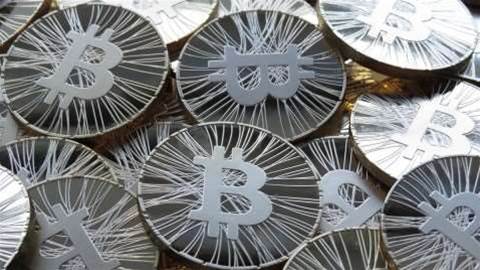Australia's central bank governor Philip Lowe has poured cold water on the possibility of introducing a national digital currency in the near future, but revealed the RBA is closely looking into it.

Speaking at the 2017 Australian Payment Summit in Sydney today, Lowe said while the central bank was giving a digital dollar "considerable thought", it had no immediate plans for a national cryptocurrency in the vein of the "volatile" Bitcoin.
“It is possible that the RBA might, in time, issue a new form of digital money – a variation on exchange settlement accounts – perhaps using distributed ledger technology,” he said.
“The case for doing this has not yet been established, but we are open to the idea.”
Lowe said cryptocurrencies like Bitcoin were not very effective methods of payment due to their high transaction costs, low ability to handle high numbers of payments, and massive energy consumption.
"When thought of purely as a payment instrument, it seems more likely to be attractive to those who want to make transactions in the black or illegal economy, rather than everyday transactions," he said.
"So the current fascination with these currencies feels more like a speculative mania than it has to do with their use as an efficient and convenient form of electronic payment."
His comments come as Bitcoin continues to reach record highs, after registering a nearly twenty-fold increase in its price this year. It currently sits at more than A$23,000.
Digital dollar in longer-term future?
However Lowe indicated the RBA had not ruled out the concept of an Australian digital dollar - he said the central bank had recently been giving "considerable thought as to what the future might look like”.
An eAUD, as he called it, could be used in “specialised payment and settlement systems” separate to the RBA’s real-time gross settlement (RTGS) system, where “the tokens could be exchanged among members of a private, permissioned distributed ledger”.
However, unlike other cryptocurrencies, there would also be “mechanisms for the tokens to be exchanged for central bank deposits when required”.
“Such a system might allow the payment and settlement process to become highly integrated with other business processes, generating efficiencies and risk reductions for private business,” Lowe said.
“As part of this, the tokens might also be able to be programmed and sit alongside smart contracts, enabling multi-stage transactions with potentially complex dependencies to take place securely and automatically.”
But the RBA is not yet convinced that there is a “strong case for the development” of new settlement systems based on distributed ledger technology.
It is continuing to work with fintechs and financial institutions to better understand the technology.
“We need to better understand the potential efficiencies for private business and why it would be preferable for such a settlement system to be provided by the central bank, rather than the private sector; why privately issued tokens or files could not do the job,” he said.
Risks to the traditional financial system would also need to be mitigated before such a system was introduced.
“On the one hand, these types of processes could use a very different technology from the current system, which is based on account-to-account transfers, so they could add to the resilience of the overall payments system," Lowe said.
“But there would be a whole host of new technology issues to manage as well.”
The federal government last week passed legislation that requires operators of Australian digital currency exchanges to register with anti-money laundering agency AUSTRAC.


_(33).jpg&h=140&w=231&c=1&s=0)


.png&h=140&w=231&c=1&s=0)





 iTnews Executive Retreat - Security Leaders Edition
iTnews Executive Retreat - Security Leaders Edition
 iTnews Benchmark Awards 2026
iTnews Benchmark Awards 2026
 iTnews Cloud Covered Breakfast Summit
iTnews Cloud Covered Breakfast Summit
 The 2026 iAwards
The 2026 iAwards












_(1).jpg&h=140&w=231&c=1&s=0)



